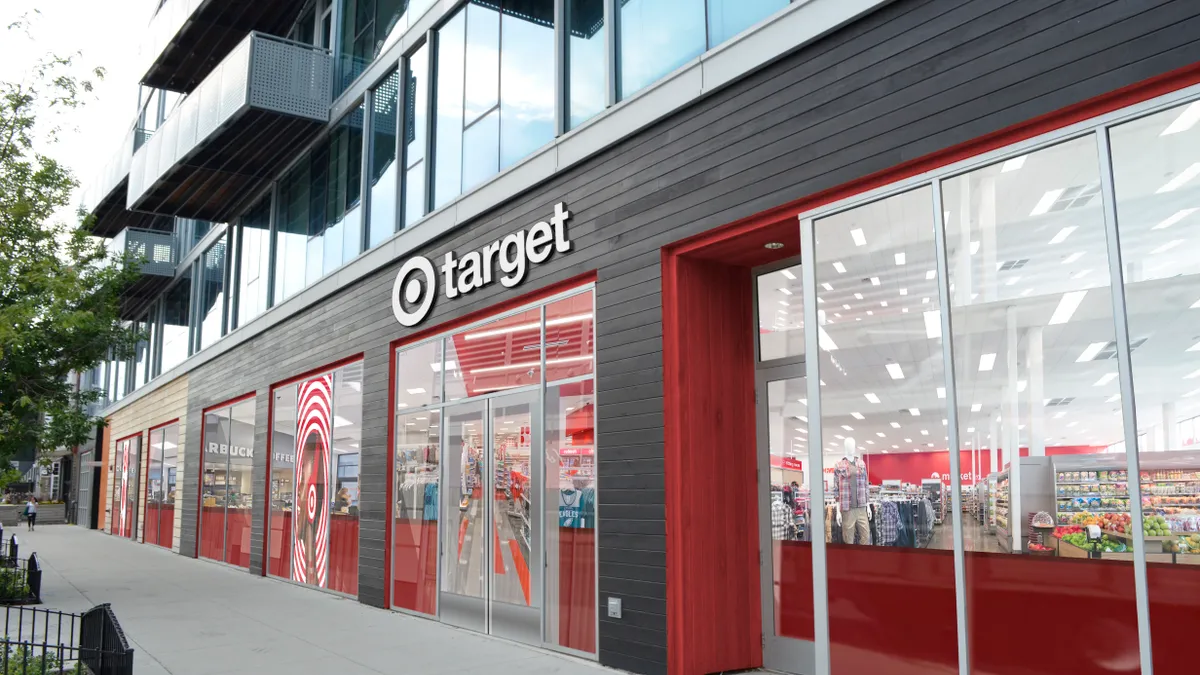Dive Brief:
- Target has announced nine startups for this summer's retail accelerator program, which it has run since 2016, and eight that will participate in its first Target Incubator program, according to a company release.
- The incubator program aims to help young entrepreneurs, and unlike the retail accelerator program, participants are not required to have a retail focus. The incubator startups will receive a $10,000 stipend and spend eight weeks at Target headquarters in Minneapolis with access to Target’s resources and mentors. Each retail startup in the accelerator program will receive $120,000 for a three-month immersion program focusing on business development and mentoring.
- The retail startups include companies like Afresh Technologies, which uses AI to optimize the fresh food supply chain for retailers and wholesalers. The ideas behind the incubator startups range from sustainable food and packaging to helping rural farmers export their produce.
Dive Insight:
Target's retailer accelerator program has proven fruitful for food-focused startups. A recent success story coming out of last year's program is Target’s partnership with Cooklist, an app that simplifies meal prep and creates shoppable recipes from a user’s inventory of ingredients at home. Flashfood, an app that helps retailers reduce food waste, also participated in last year's program and now has a pilot with Hy-Vee in Wisconsin.
With the new incubator program, Target is focusing on Gen Z entrepreneurs, giving the retailer an inside track on new ideas and innovations that could resonate with this coming-of-age shopper demographic. The selected businesses will take part in virtual programming from now until June. After that, the eight-week program will take them to Minneapolis for the remainder of the program.
The incubator program encompasses both technology and sustainability. The application guidelines go so far as to say the business "must aim to make the world a better place." Some of the startups selected include Pulp Pantry, a sustainable food company that aims to transform fruit and vegetable byproducts into snacks while also eliminating food waste. Terravive creates compostable and recyclable home products made from plants. Blue Mangoes helps rural farmers in Central America and Africa sell their goods in the U.S.
The focus on food and technology aligns with Target’s recent push to build its grocery business. In 2018, the retailer started to see growth in its grocery sector after years of struggling and also saw its fifth year in a row of more than 25% growth in online sales. They’ve also invested in unique brands, private label products and the addition of organics and other innovative foods.
Target isn’t alone when it comes to crowdsourcing new ideas. Walmart has put out a call for entries for its sixth annual Open Call, inviting entrepreneurs to pitch products that are made, sourced or grown in the U.S. for the chance to secure a placement deal in its stores. Similarly, H-E-B’s annual “H-E-B Quest for Texas Best” is a call for locally owned producers to apply for a chance to end up on its shelves. Peapod recently held its Peapod's Next Best product search in Chicago.












